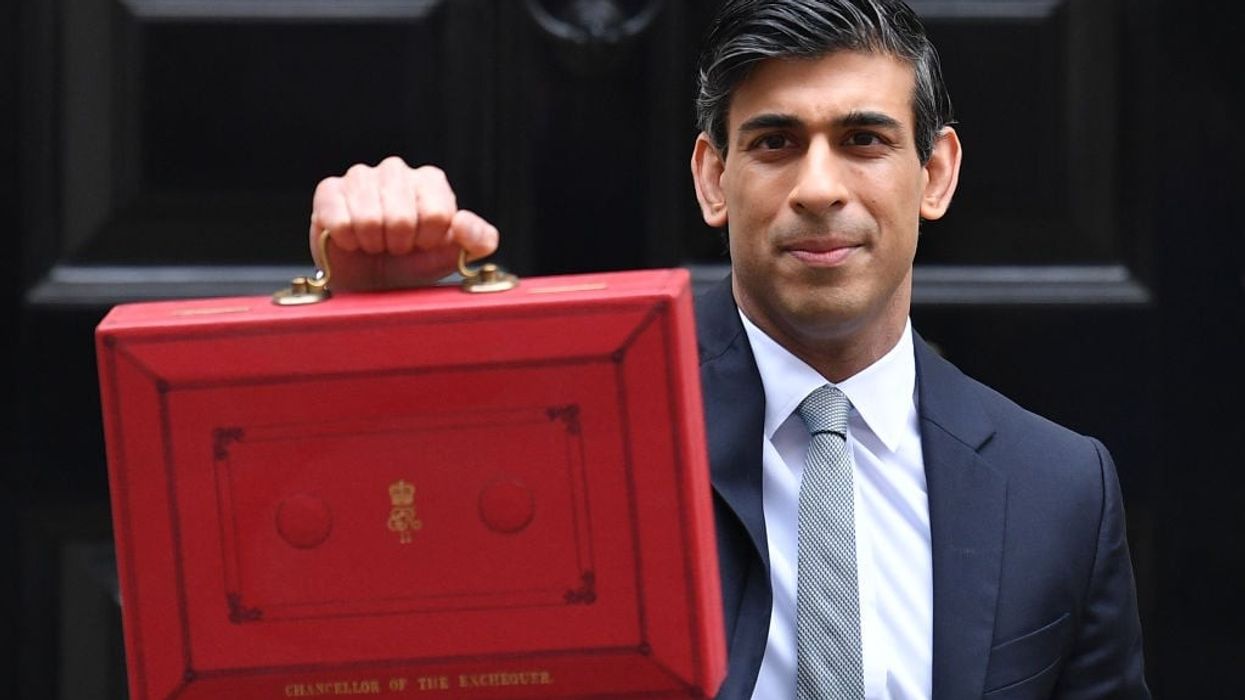- Sunak announces continuation of emergency support
- UK economy to recover pre-pandemic size mid-2022
- Borrowing forecasts revised up sharply for 2021/22
- Corporation tax to rise from 2023
- Sunak freezes income tax thresholds
UK finance minister Rishi Sunak extended costly emergency programmes to see Britain's economy through the Covid-19 crisis but announced a future tax squeeze on businesses and individuals as he began to focus on the huge hole in the public finances.
Delivering an annual budget speech on Wednesday (3), Sunak said the economy will regain its pre-pandemic size in mid-2022, six months earlier than previously forecast, helped by Europe's fastest vaccination programme.
But it will remain 3 per cent smaller in five years' time than it would have been without the health shock and extra support is needed now as the country remains under coronavirus restrictions, he said.
"First, we will continue doing whatever it takes to support the British people and businesses through this moment of crisis," Sunak told parliament.
"Second, once we are on the way to recovery, we will need to begin fixing the public finances – and I want to be honest today about our plans to do that. And, third, in today's Budget we begin the work of building our future economy."
Among new support measures were a five-month extension of Britain's huge jobs rescue plan and more help for the self-employed, the continuation of an emergency increase in welfare payments, and an extended VAT cut for the hospitality sector.
A business rates exemption for retail, hospitality and leisure businesses was extended until the end of June, by when prime minister Boris Johnson hopes he will have lifted most Covid-19 restrictions.
An existing tax break for home-buyers will also now run until June 30 and will then apply for cheaper homes until the end of September.
Sunak will borrow significantly more in the coming financial year than thought just a few months ago - £234 billion, or 10.3 per cent of gross domestic product, compared with a previous estimate of £164.2bn , or 7.4 per cent of GDP.
To bring borrowing under control, Sunak announced future tax rises that will increase the tax burden to its highest level since the 1960s, rising from 34 to 35 per cent of GDP by the middle of this decade.
Finance minister announced that would raise corporation tax to 25 per cent from 19 per cent from 2023, by which time the crisis should be over.
"Even after this change the UK will still have the lowest corporation tax rate in the G7 – lower than the US, Canada, Italy, Japan, Germany and France," he said.
Businesses with profits of £50,000 or less would pay a new Small Profits Rate, maintained at the current rate of 19 per cent.
To offset the hit, Sunak increased incentives for investment in items such as new equipment over the next two years. "This will be the biggest business tax cut in modern British history," he said.
Britain has suffered the biggest Covid-19 death toll in Europe and its economy has been the worst hit among big rich countries, shrinking by 10 per cent last year, its worst slump in three centuries.
Many companies are also under strain from Brexit after Britain left the European Union's single market on January 1, and the government faces the challenge of huge investment to meet its promise to create a net zero carbon economy by 2050.
Freeze on personal tax thresholds
Sunak said that Britain will freeze the amount of money that people can earn tax-free and also the threshold for the higher rate of income tax until 2026.
He added that while the basic income tax rate of 20 per cent and higher income tax rate of 40 per cent would not be increased, the 'personal allowance' of tax-free earnings and threshold at which the higher tax rate kicks in would not rise with inflation.
"This government is not going to raise the rates of income tax, national insurance or VAT. Instead our first step is to freeze personal tax thresholds," Sunak told parliament.
"We will, of course, deliver our promise to increase (the personal allowance) again next year to £12,570 but we will then keep it at this more generous level until April 2026."
He said the higher-rate threshold would also increase next year to £50,270, as previously promised, but would then also be frozen for the same length of time.
The Institute for Fiscal Studies think-tank said the four-year freeze would make the finance ministry £1.5bn in its first year and £8bn a year by 2025/2026.
The personal allowance threshold and higher rate threshold in England and Northern Ireland had previously been £12,500 and £50,000 a year respectively.
Economy to grow 4 per cent
Announcing forecasts by the Office for Budgetary Responsibility (OBR), Sunak said the economy was likely to grow 4 per cent in 2021, slower than a forecast of 5.5 per cent made in November, reflecting the current lockdown which began in January.
Looking further ahead, the OBR forecast GDP would grow by 7.3 per cent, 1.7 per cent and 1.6 per cent in 2022, 2023 and 2024 respectively. In November, the OBR had forecast growth in those years of 6.6 per cent, 2.3 per cent and 1.7 per cent.
Sunak has already racked up Britain's highest borrowing since World War Two, with the deficit reaching an estimated 17 per cent of GDP in the 2020/21 financial year that ends in April and set to fall to a still historically high 10.3 per cent in 2021/22.





